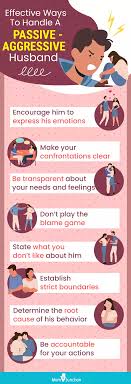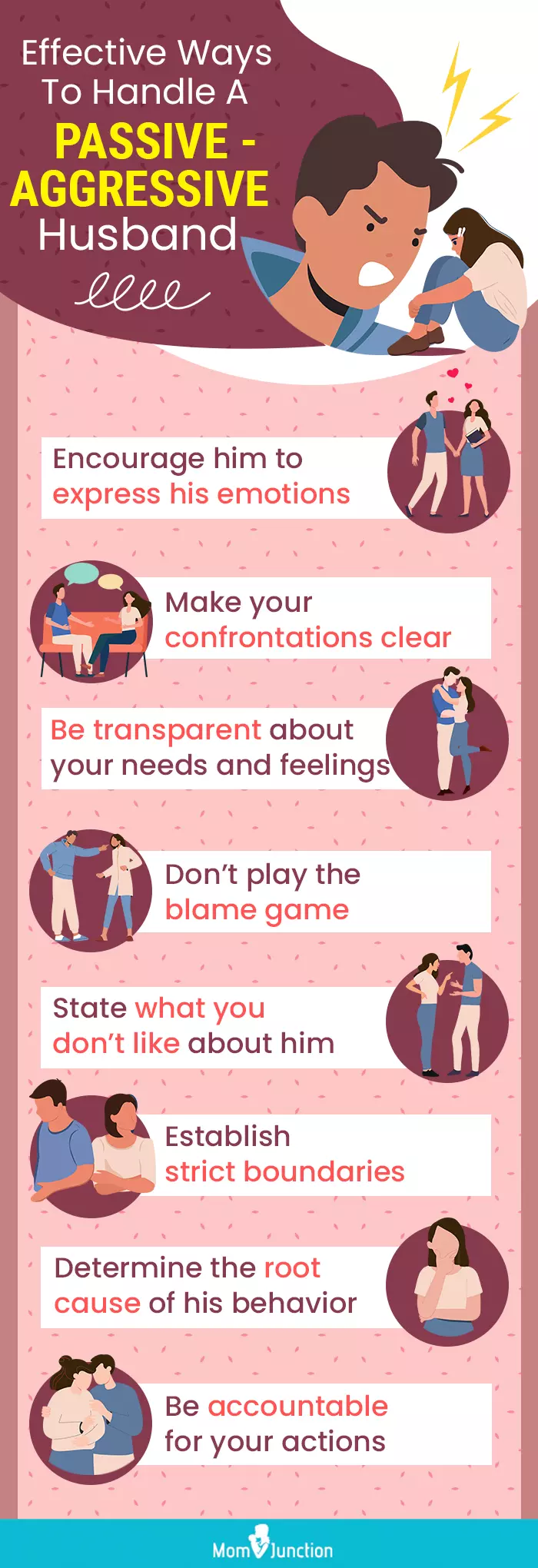Okay, so, dealing with a passive-aggressive husband…it’s been a journey, let me tell you. I’m not a therapist or anything, just a regular person sharing what worked (and what didn’t) for me.

Recognizing the Signs
First, I had to actually figure out what was going on. It wasn’t shouting matches or big fights. It was more like…subtle digs, the silent treatment, that kind of stuff. I started keeping a journal, just jotting down instances where I felt that icky, confused feeling. Like, he’d “forget” to do something I asked, or make sarcastic comments disguised as jokes.
The Initial (Failed) Attempts
My first instinct? To call him out directly. Big mistake. HUGE. It just led to more denial and him turning it back on me. “I’m not being passive-aggressive, you’re just too sensitive!” Sound familiar? Then I tried being overly nice, hoping he’d just…stop. Nope. That just seemed to enable the behavior.
Shifting My Approach
This is where things started to change. I realized I couldn’t make him change, but I could change how I reacted. I started setting boundaries. Not in a confrontational way, but more like…calmly stating my needs. For example, instead of “Why didn’t you take out the trash?!” (which always ended badly), I’d say, “Hey, I noticed the trash is overflowing. Could you take care of that when you have a moment?”
Another big thing was focusing on my own well-being. I started spending more time with friends, doing hobbies I enjoyed, and generally just taking care of myself. This made me feel less reliant on his moods and more in control of my own happiness.
Communication…Differently
I have learned, avoiding using “you” statements, I mean, instead of saying “You always do this!”, I will try “I feel frustrated when this happens.” Sounds corny, but it makes a difference. It’s less accusatory, and it opens up the conversation (sometimes).

Getting Help
Honestly, couples counseling was a lifesaver. It took some convincing, but having a neutral third party help us communicate was invaluable. The therapist gave us tools to understand each other better and work through our issues.
The Ongoing Reality
It’s not perfect. There are still moments, days even, where the passive-aggressiveness rears its ugly head. But it’s better. I’m better at recognizing it, responding calmly, and not letting it control my emotions. I’ve also learned to accept that I can’t change him completely, but I can create a healthier dynamic for myself.
It’s a process, really. A long, sometimes frustrating, but ultimately worthwhile process. The key, for me, has been staying consistent, prioritizing my own well-being, and remembering that I deserve to be treated with respect.









